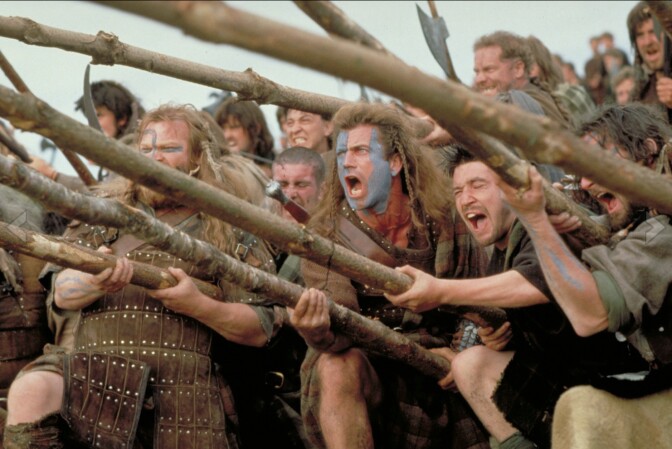This story is free to read because readers choose to support LAist. If you find value in independent local reporting, make a donation to power our newsroom today.
The Academy Told Sacheen Littlefeather It's Sorry. Here Are Some Other Things Hollywood Should Apologize For

Last Saturday, the Academy of Motion Pictures Arts & Sciences formally apologized to Sacheen Littlefeather for how she was treated at 1973’s Oscars, when Marlon Brando sent the Native American activist and performer to decline his best actor Academy Award for The Godfather. Littlefeather was booed, mocked and blacklisted — for saying little more than Hollywood depictions of Native Americans were flawed.
Even if it took nearly half a century for the academy to say sorry (and we have yet to hear from others who trafficked in Littlefeather insults, like the nativist comedian Dennis Miller), its apology — which was live-streamed — mattered: It’s by confronting our mistakes that we learn to be better.
There is so much more for which Hollywood could ask forgiveness: creative content that has targeted broad swaths of people, almost all of whom are and have been as disenfranchised as Littlefeather and her fellow Native Americans.
And many of the worst transgressions arrived in recent memory — this isn’t about going back in time to Birth of a Nation or Gone With the Wind. These works were created when when people in Hollywood believed they were more tolerant and enlightened.
Embracing the maxim that it’s not too late to say sorry (it took the United States more than four decades to apologize for imprisoning Japanese Americans during World War II, after all), here are four particularly harmful and relatively contemporary movies that have helped foment intolerance at best and hatred at worst:
'Cruising' (1980)
Writer-director William Friedkin’s crime drama leeringly depicted gay subculture as violent and aberrant. Despite its incongruous on-screen disclaimer that Cruising was not "an indictment of the homosexual world," the film was very much received as such. After its release, the screenwriter of Philadelphia said he and his boyfriend were assaulted by men who had recently seen Cruising.
'Braveheart' (1995)
Mel Gibson has a well-deserved reputation as an anti-Semite (for both 2004’s The Passion of the Christ and his 2006 drunk driving rant about Jews) and racist misogynist, but he has other targets, too. His best-picture winning Braveheart features a gratuitous scene of homophobia — a prince’s gay lover is summarily tossed out a window to his death that sadly drew laughing approval from some moviegoers.
'The Siege' (1998)
Directed by prominent Hollywood liberal Edward Zwick, the film’s depiction of Arab terrorists was so extreme that prominent Arab and Islamic groups protested its release. In a horrible twist, a Guantanamo Bay “enemy combatant” said the film’s martial law roundup of Arabs mirrored his own arrest, imprisonment and torture for 13 years (he was never charged). "Am I in that movie or on a stage in Hollywood?” he said. “Sometimes I laugh at myself and say, ‘When does that movie end?’”
'Zoolander 2' (2016)
You might think some of those responsible — director, co-writer and star Ben Stiller, co-stars Benedict Cumberbatch and Owen Wilson — would know better, but the sequel’s depiction of the non-binary model “All” (Cumberbatch) features a mash-up of gender stereotypes in just seconds. None of them funny.
About our Retake podcast
Retake with John Horn asks: do the stories Hollywood tells about itself really reflect what's going on? Veteran entertainment reporter John Horn provides a critical, informed perspective at a time of tumultuous change in the entertainment business.








